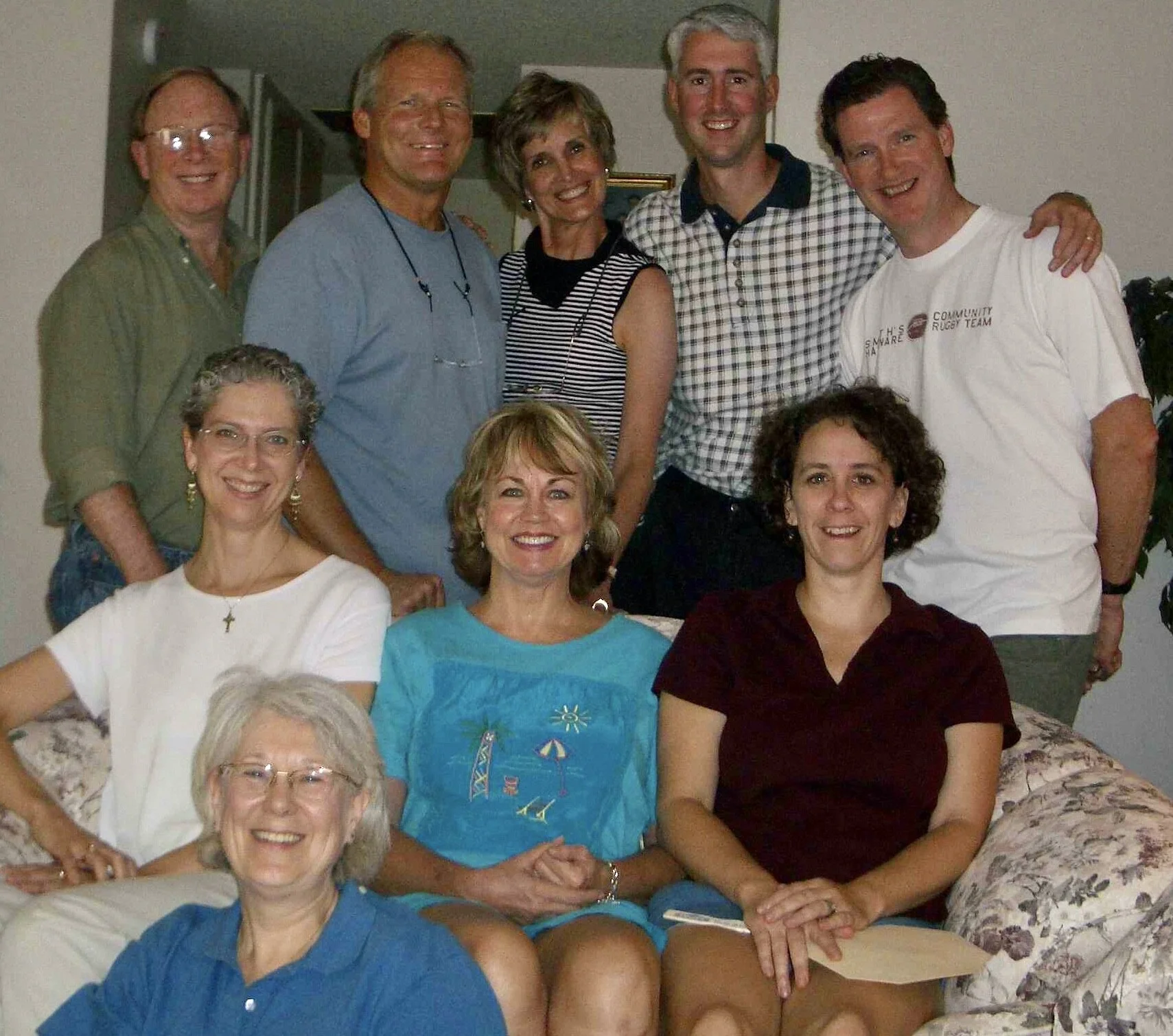Spinning your wheels in conflict – Now What?!
For the first decade of our marriage, we had many, many conflicts in the car as we were driving somewhere. I had a knack for slamming on the fake breaks and dramatically grabbing the dashboard. But apparently what was most annoying was my running commentary (I viewed them as helpful insights) on how we might 1) get there faster, 2) pass that person, 3) take a shortcut, 4) stop and squeeze in an errand to make things more efficient.
Driving became an increasingly stressful source of conflict. I was critical and anxious while he was driving. My husband felt like I didn’t trust him which led to him being defensive and well, let's just say, non-cooperative. (Oh the joys of early marriage…)
As I mentioned in a recent post, Messy Conflict- Who's at Fault?, conflict can be a knotted mess of issues, relationships, and personalities. But when you have the same conflict over and over, you may have to dig deeper to uncover what is fueling the conflict and keeping you from moving forward.
I offer to you my neurotic car behaviors as a microcosm of what could possibly be happening in an ongoing conflict that you cannot seem to be able to resolve.
Your first line of exploration in conflict will usually be one of the following:
Differing Expectations… Conflict often begins when we have unmet expecations. I thought we could stop by the store on the way home; he thought we were just going to go to church. You thought your boss would be mentoring you; he doesn’t have time for additional meetings. You thought your friend would reach out during your crisis; they did not make time to call. Sometimes we aren't even aware of our expectations until they aren't met. Conflict points you towards the things you need to clarify.
Personality and style differences… Of course, we all know style differences cause friction. Structured vs. Flexible. High-paced vs. slow-paced. Introvert vs. Extravert. Detail oriented vs. Big picture. These things take TIME to discover and negotiate in relationships. I always liked to make a fun stop for a treat on our road trips, but when Alex gets in the car, he did not like stopping for treats or bathroom breaks, it was gas ONLY (having three daughters with small bladders broke him of that one!).
Value Differences: Our values play into all our decisions. We may be weighing: Paying more to get there faster; Including everyone vs. having a small intimate gathering; washing dishes vs. using paper goods; including everyone in the decision vs. streamlining the decision. These values will differ from other's values, may change over time; and sometimes they need to be reordered for a season when something else needs to take priority.
Structural issues: Organizations and systems are notoriously complicated. As you move into new systems (including joining a new family), you will be bumping up against politics, history, power brokers, spoken and unspoken rules. These rubs will cause conflict as you learn about the way things work.
The bottom line is that neither structures nor differences in personality, style, and values are inherently sinful, but they do cause conflict. These differences have to be negotiated in our relationships which requires time, energy, and discussions.
But what if you STILL keep having conflict on the same issue?
But here’s why our car conflict really didn’t go away. We had negotiated our expectations, came to the halfway point on some of our style differences, learned to honor who might actually know the best route but we would still get into arguments.
Here's how you know you may have a deeper issue at play:
Your intense negative emotions continue to hurt yourself and others. Recurring and intense negative emotions such as anger, anxiety, fear, and control are red flags that something deeper is under the conflict. Follow those emotions inward, there are not usually about the situation at hand.
You are spinning your wheels in conflict… You keep talking about the same things over and over, but nothing gets resolved.
You feel like you are following a script… Your conflict plays out repeatedly like a script. You could almost predict what the other person is going to say.
You are having unusually charged conversations… The intensity of emotions don’t necessarily match the situation at hand. You may start out talking about something small like why she forgot to pay a bill and suddenly someone is talking about divorce.
Your experience (or theirs) doesn’t match reality… Our strongholds distort our perceptions. We may feel unloved when we are surrounded by people who love us. We may experience someone's distraction as rejection. We may be catastrophizing every little thing that goes wrong. (We often see this with people with a history of trauma. They may suddenly feel very unsafe in a normal relationship or conflict, and may literally flee this situation because they are flooded with fear.)
You (or the other person) keeps deflecting from the core issues… When someone keeps pulling the conflict back up to the surface issues of conflict (i.e. personality, vision differences, communication styles, etc.) after you have repeatedly talked those things through, chances are good you are dealing with a deeper heart issues. Or other times, someone might keep pulling in other conflicts that aren't necessarily connected to avoid going deeper.
Digging deeper to see what is underneath the conflict...
Our battles in the car weren't really about expectations, personalities, or values. The bottom line is that I didn’t like to be out of control. Even though I knew Alex was a safe driver, I was still anxious when he was in the driver’s seat.
Long ago, I had made a vow that “I will take care of myself.” This was a vow made in a moment when I realized my parents had way too much going on themselves for me to add to their burdens.
Initially, this vow served me well in many ways. It kept me afloat in a chaotic family system. It aligned with my naturally independent personality. It caused me to get creative in getting my needs and dreams met.
But ultimately, when the time came to develop healthy trust with others in marriage, in ministry, and in community life, I found myself having a hard time trusting others in their decisions. Sometimes this came out in through trying to control my environment. Other times this meant I was overly critical. I often questioned whether leaders were making the best decision.
Childhood vows, wounds, and lies we have internalized can wreak havoc on our adult relationships. To become a healthy adult, I needed to recognize that I can’t always be in control. I need to be able to trust others when they are making decisions on my behalf— whether I’m riding in a car or following someone else’s leadership. And I can’t empower those I lead if I’m constantly demanding that things be done in my preferred way.
The deeper issue feeding these conflicts was TRUST. I did not trust others. And at deeper levels, I even had trouble trusting God. Other types of deeply seated beliefs might include: I don’t feel loved. I don’t feel seen. I can't trust others. If others knew the real me, they would reject me. I am not worthy of love. I cannot trust men. People in authority will abuse you.
So how do we pursue healing for these deeper issues?
If you are experiencing a significant conflict in your life, you need to see this as an invitation towards greater wholeness and healing. Conflict (or crisis) is almost always necessary to force us to go to the deep places.
This is your moment— push in and get healing. You can run from this situation (i.e. the marriage, the team conflict, the confrontation from someone you love), but this stronghold will surface again. And again. You cannot outrun these deep seated wounds without causing significant damage to yourself and others.
You will need outside help. Your reality may be quite distorted, depending on the type of stronghold with which you are dealing. You must entrust yourself to others that they may be seeing things you cannot. Surround yourself with wise counselors— people who love you, who can say hard things to you, and who will hold you accountable. Focus on your stuff, not the other person's stuff.
Often our deep wounds house a lie or faulty belief. At the core of these areas of deep healing are often strongholds built on a lie that we have internalized. The vows and beliefs we hold internally have spiritual power within us. We can align ourselves with Light or we can align ourselves with darkness. Every agreement we make with darkness gains a power over our behavior and thinking. You can read more about strongholds here.
And if the stronghold is on THEIR side? And they are not willing to address it? Yeah, that stinks. I will address that in a future post. But you are not responsible for someone else's healing-- you are only responsible for your own. If you have to set boundaries with someone because of their unwillingness to move towards healing, God will show you the path.
Deep healing takes time. Dismantling my childhood vow took the greater part of the decade of my 30’s. Of course it was mixed in with other lies, traumas, and the need to forgive others. Then I had to walk it out for a while.
Some years I had watershed breakthroughs, other years I just addressed junk as it arose. Ultimately, there was a season of crisis that fully imploded that stronghold, gave me the opportunity to renounce the lie, and live into a new truth. Not that I knew that in the moment-- I was hurting too badly from the conflict and loss. But I was not the same person of the other side. The freedom is extraordinary!
It's been a many years since I've slammed on the imaginary brakes while Alex was driving. We are not the same people we were bickering in our 20's-- thankfully, those conflicts pushed us towards greater acceptance of differences and healing for deeper issues.
But the truth is I may need a new level of healing on my trust issues when I get into the car with my daughters at the wheel. Grateful His mercies are new every morning. :)





